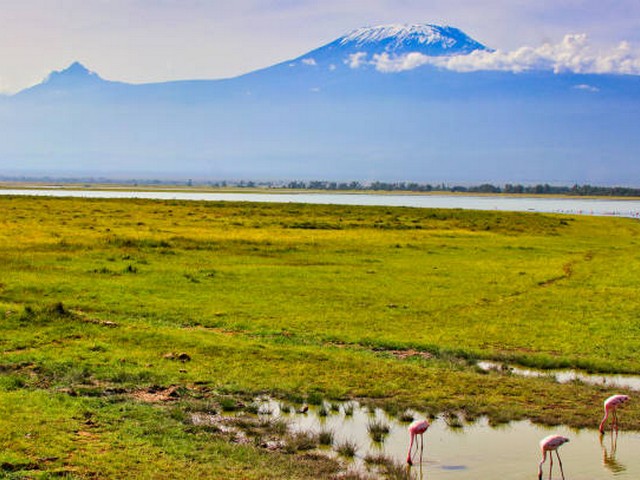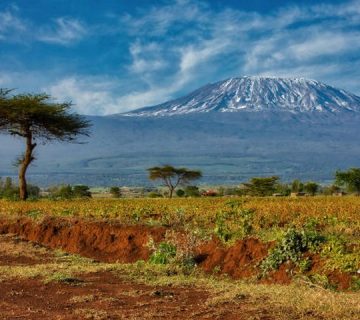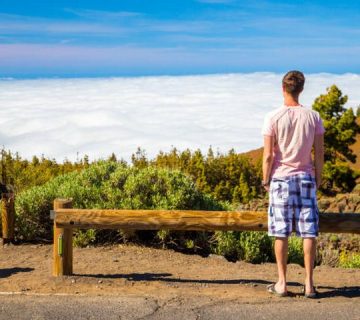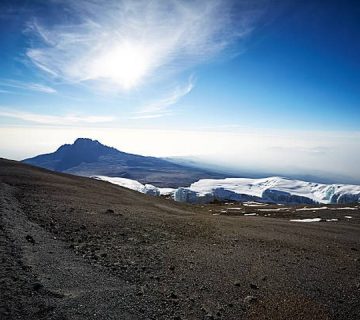How To Support Local Communities During Kilimanjaro Trekking
Embracing Sustainable Travel: Your Guide to Making a Difference
Climbing Mount Kilimanjaro is more than a physical challenge; it’s a journey into the heart of Tanzania, where the majestic mountain meets vibrant local cultures. At Kilimanjaro Centre for Trekking and Ecotourism (KCTE), we believe that this experience can transcend personal achievement and contribute positively to the communities that make this region unique. This blog post explores practical ways in which trekkers can support local communities while enjoying the adventure of a lifetime on Africa’s highest peak.
Understanding the Impact
Before diving into how you can help, it’s crucial to understand why your support matters. The communities around Mount Kilimanjaro largely depend on tourism. From porters and guides to artisans and lodge staff, the economic ripple effect of every trek reaches far and wide. By supporting local economies and sustainable practices, trekkers can help preserve the mountain’s natural beauty and cultural heritage for future generations.
Hiring Local Guides and Porters
Choose Responsible Tour Operators
When planning your climb, select a tour operator committed to ethical practices, like Kilimanjaro Centre for Trekking and Ecotourism (KCTE). We ensure fair wages, proper equipment, and adequate support for our teams, setting an industry standard for porter welfare and client satisfaction.
Understand Porter Welfare
Support companies that are part of the Kilimanjaro Porters Assistance Project (KPAP) or similar initiatives. These organizations advocate for the fair treatment of porters, providing education on climbers’ rights and ensuring no porter is overloaded or underpaid.
Engaging with Local Culture
Visit Local Villages
Schedule visits to local villages either before or after your trek. This interaction allows you to learn about the indigenous Chagga tribe, their history, traditions, and way of life. It also provides an opportunity to contribute directly to the local economy.
Participate in Cultural Experiences
Engage in cultural exchanges that might include traditional dance performances, local cooking classes, or coffee plantation tours. These experiences deepen your understanding of the area and provide additional income streams for local residents.
Supporting Local Artisans and Businesses
Buy Local Products
Purchase souvenirs and gifts from local artisans. Whether it’s handwoven baskets, traditional jewelry, or wood carvings, buying locally made products helps sustain artisan skills and provides direct economic benefits to families.
Eat at Local Restaurants
Choose to eat in local restaurants and lodges during your stay. This not only gives you a taste of local cuisine but also supports small business owners and promotes community resilience.
Participating in Community Projects
Volunteer Opportunities
Consider extending your stay to volunteer with local organizations. Whether it’s teaching English, assisting in health care clinics, or helping with reforestation projects, your time and skills can make a significant impact.
Donate to Local Causes
If you are unable, due to time constraints, to participate personally in volunteer activities, consider making a donation to credible local charities or community projects. Even small contributions can help fund crucial community services and development projects.
Practicing Environmental Stewardship
Leave No Trace
Respect the environment by adhering to Leave No Trace principles during your trek. This includes disposing of waste properly, minimizing campfire impacts, and respecting wildlife.
Support Conservation Efforts
Contribute to conservation initiatives that protect the mountain’s ecosystem. Organizations like the Kilimanjaro Environmental Conservation Project focus on reforestation, combating poaching, and educating visitors and locals on conservation practices.
Why Book Your Climb with Kilimanjaro Centre for Trekking and Ecotourism (KCTE)?
At KCTE, we are deeply committed not only to offering an unforgettable and safe climbing experience but also to empowering the local communities that make Kilimanjaro so special. By booking your trek with us, you’re choosing a company that:
- Provides fair employment practices for all staff.
- Engages in and supports sustainable tourism practices.
- Actively participates in local community initiatives.
- Offers authentic cultural experiences that promote mutual respect and understanding.
In Summary
Supporting local communities during your Kilimanjaro trek enhances your experience and contributes to the sustainability of this incredible destination. By choosing responsible tour operators, engaging with local cultures, supporting local economies, and committing to environmental stewardship, you can make a meaningful impact.
Climb with us at Kilimanjaro Centre for Trekking and Ecotourism, where adventure meets advocacy, and every step you take helps uplift the community that welcomes you to their home.
FAQs:
How can I ensure that my visit benefits the local community?
Choose tour operators like KCTE that implement fair employment practices and support local businesses and initiatives.
Are there specific local products to look out for as souvenirs?
Yes! Look for unique items like handcrafted Maasai bracelets, Chagga woven baskets, and Tanzanian Tinga Tinga paintings.
Is it possible to visit local schools or community centers?
Yes, KCTE can arrange culturally sensitive visits to schools and community centers where you can interact and learn more about local initiatives.
How can I learn more about the culture of the people living around Kilimanjaro?
Participate in village tours and cultural experiences offered through KCTE, which highlight the rich heritage of the Chagga people and other local communities.
Embark on your Kilimanjaro trek with a purpose. Choose Kilimanjaro Centre for Trekking and Ecotourism (KCTE) for a journey that enriches both you and the mountain’s native communities. See you at the summit!




